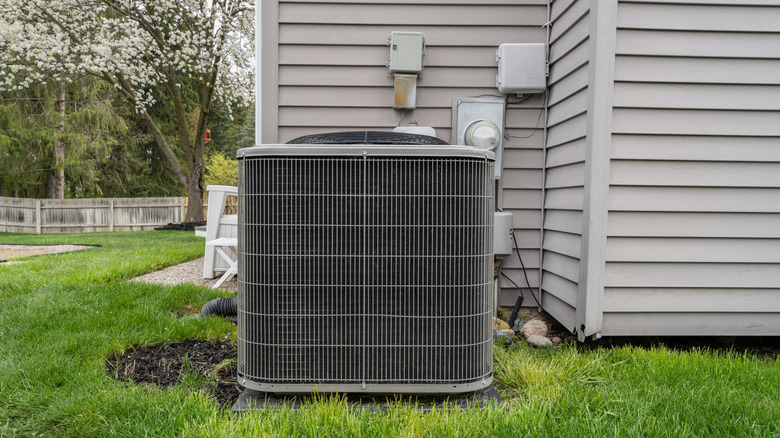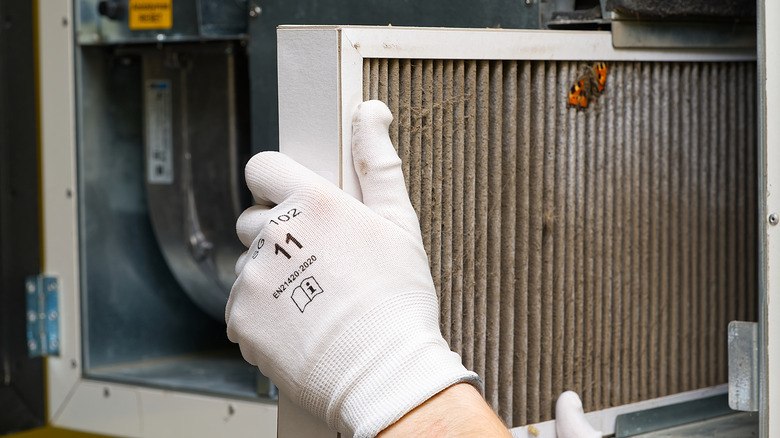Here's Why Your Central AC Has Stopped Cooling (& What To Do About It)
It's no secret that HVAC systems require maintenance from time to time — taking regular care of your central air conditioner in the first place will help to prevent issues and ensure it lasts as long as possible. Despite our best intentions, however, at some point you may find that your AC has stopped cooling. If so, you're likely wondering how you can fix the problem as quickly as possible without needing to call an HVAC professional or pay for a costly repair. There are few central air conditioner problems that can cause it to stop cooling and a few things you can look for on your own to diagnose the issue.
Other than the thermostat not being set properly, the problem could result from obstructions that prevent cold air from blowing properly. This could include a filter being clogged or an outside condenser unit being blocked by plants or other objects. The system may also be low on the refrigerant that helps it cool your home — if there's a leak, a central air system will lose freon over time, so this is worth checking for. In addition to these issues, certain components may be faulty or broken, such as the AC contactor, the start and run capacitor, or the outdoor unit's thermistor which helps to set the desired temperature.
What to do about a central AC that's not cooling
If your air conditioner isn't cooling, you can try to diagnose the problem yourself. First, check the thermostat and be sure that it's set correctly and on a lower temperature than your actual room temperature. You may also want to consider changing the battery. You should also check the circuit breaker. Make sure the switch for your AC is turned on. Next, you may want to check for obstructions. Examine the air filter and consider changing it to improve the situation. Another thing to check is the disconnect box near your outside unit. Make sure that it's on or consider turning it off and back on. It could be damaged or have wiring problems.
Cooling problems are often the result of a faulty air conditioner contactor or capacitor. If in doubt, consider replacing these components first. The compressor could also be faulty but you'll usually need professional help to replace it, unless you're particularly skilled with DIY HVAC tasks. Cleaning filters and replacing some of these key components may be all that's needed for the AC to start cooling again. However, if these actions fail, you'll probably need to call a professional. Even if you think you can diagnose the problem on your own, you may want to consider simply hiring a professional from the beginning. HVAC systems do a lot for your home, so it's worth the expense to keep it in tip-top shape.

